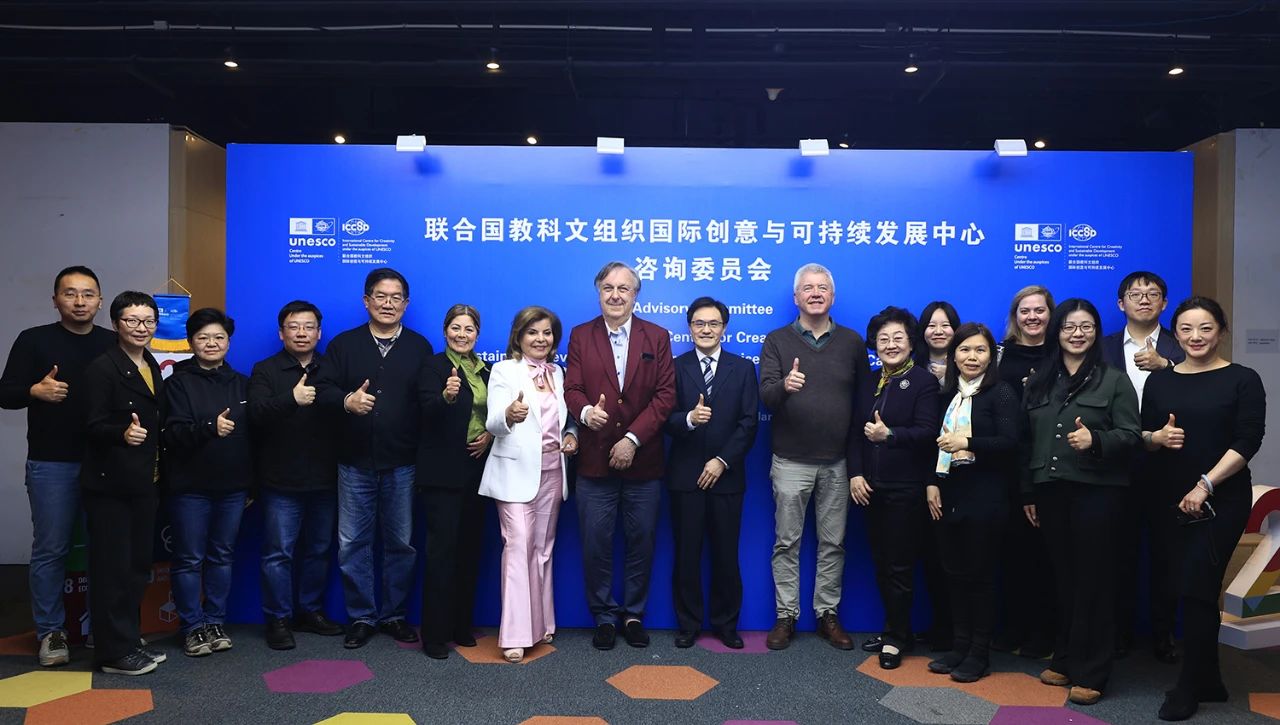Origin: 2025-04-01 | ICCSD
https://city.cri.cn/20250401/bbd790a8-8de7-a2da-3d4c-e2a9e7097920-i.html
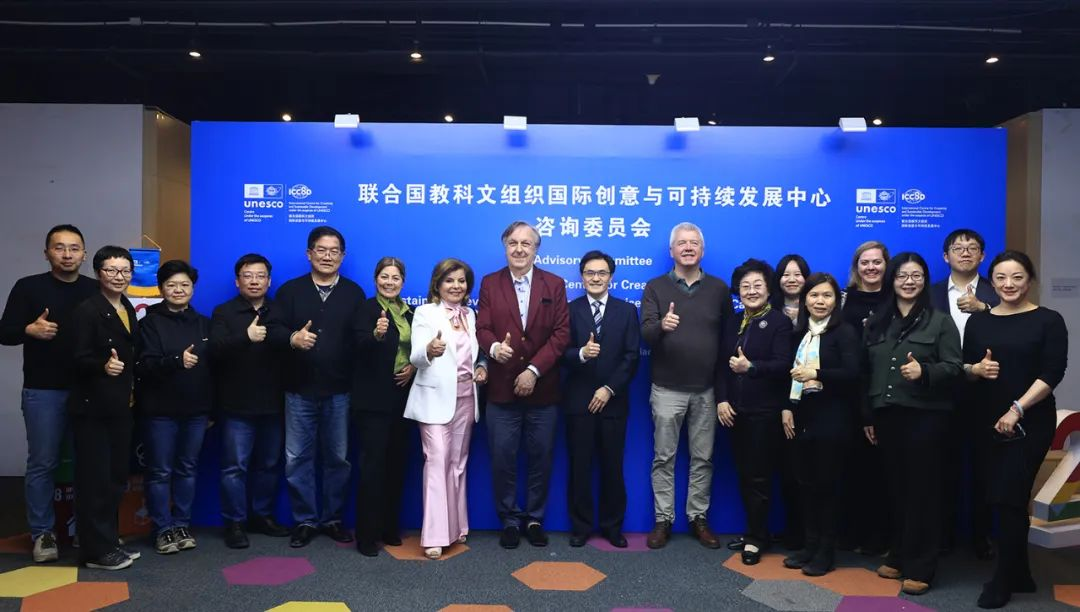
Group photo of attending experts and staff
On March 30, 2025, the Advisory Committee Meeting of the International Center for Creativity and Sustainable Development under the Auspices of UNESCO (hereinafter referred to as the “ICCSD”) was held at the World Design Capital in Beijing. The Advisory Committee members and attending guests engaged in in-depth discussions around the theme of “Innovating Future Digital New Space, Strengthening Sustainable Development and Cultural Expression”, and provided suggestions for the ICCSD’s work plan and international resource expansion.
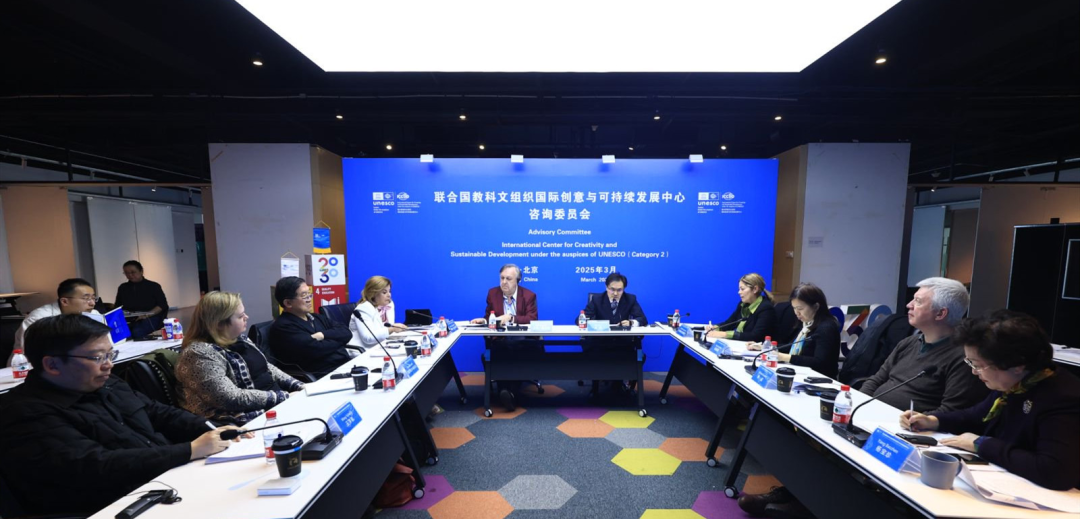
Conference site
The meeting was hosted by Xiao Lan, Executive Director of ICCSD, and Hans d’Orville, Chairman of ICCSD and Honorary Professor of South China University of Technology. Ten Advisory Committee members and experts from six countries attended the meeting, including Mehri Madarshahi, President of the Global Cultural Network and Visiting Professor at South China University of Technology and Shandong University of Art & Design; Richard Leaver, Fellow of the Royal Society of Arts and Visiting Professor at Hainan University; Carolina Quintana, Director of the Asia-Pacific of the World Trade Point Federation; Veronika Liebl, General Manager of the Festival and Exhibition Department at the Arts Electronica Festival in Linz, Austria; Zhang Xiaoming, Researcher at the Chinese Academy of Social Sciences and Director of the Cultural Policy Committee of the China Association of Policy Science; Professor Yang Yueming, Deputy Director of the Institute of Cultural Innovation and Communication at Beijing Normal University; Yang Baozhen, International Expert Committee Member of the China Association for Small & Medium Commercial Enterprises and former Chinese Consul in France; and Professor Wang Yuhang, Assistant Dean of the School of Marxism at the University of International Business and Economics.
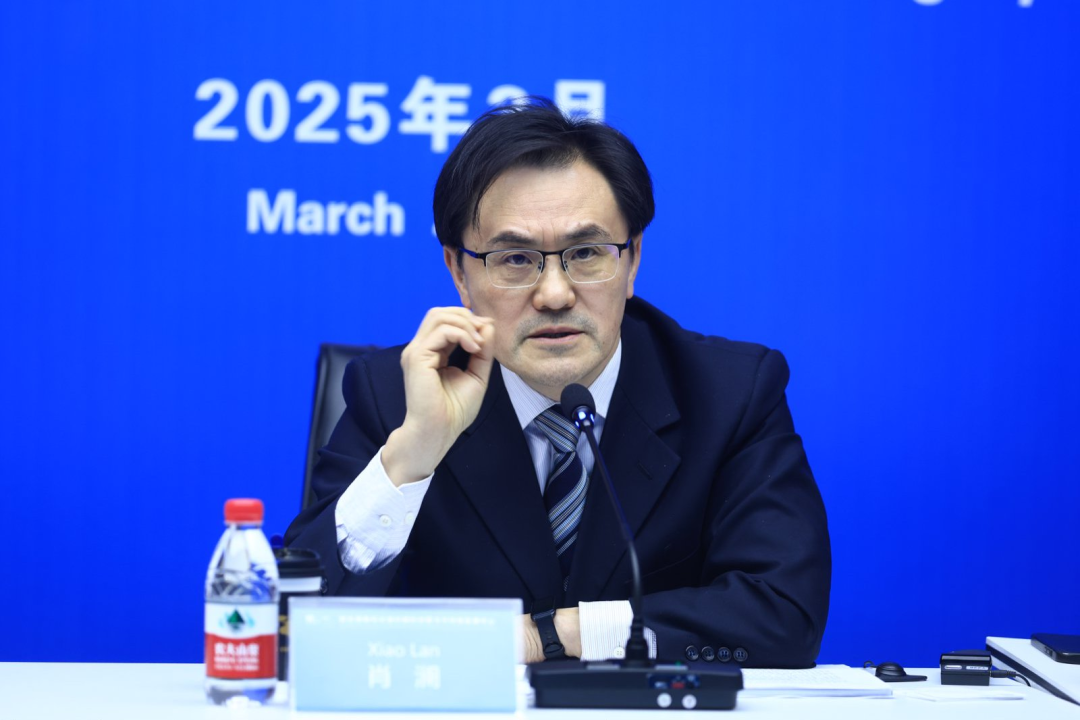
Xiao Lan, Director of ICCSD, delivers a speech
In his speech, Director Xiao Lan expressed gratitude to the attendees for their strong support of the Fourth Creativity 2030 International Forum hosted by ICCSD, noting that the experts’ remarkable presentations provided important insights for the protection of cultural diversity in the digital age. The Advisory Committee discussed around the theme of “Innovating the Future Digital Space”, highlighting that this important proposition requires collaboration from all parties. The ICCSD is willing to build a bridge for communication and mutual learning. At the same time, Xiao Lan stated that ICCSD will deepen its mission and looked forward to ongoing support and cooperation from experts.
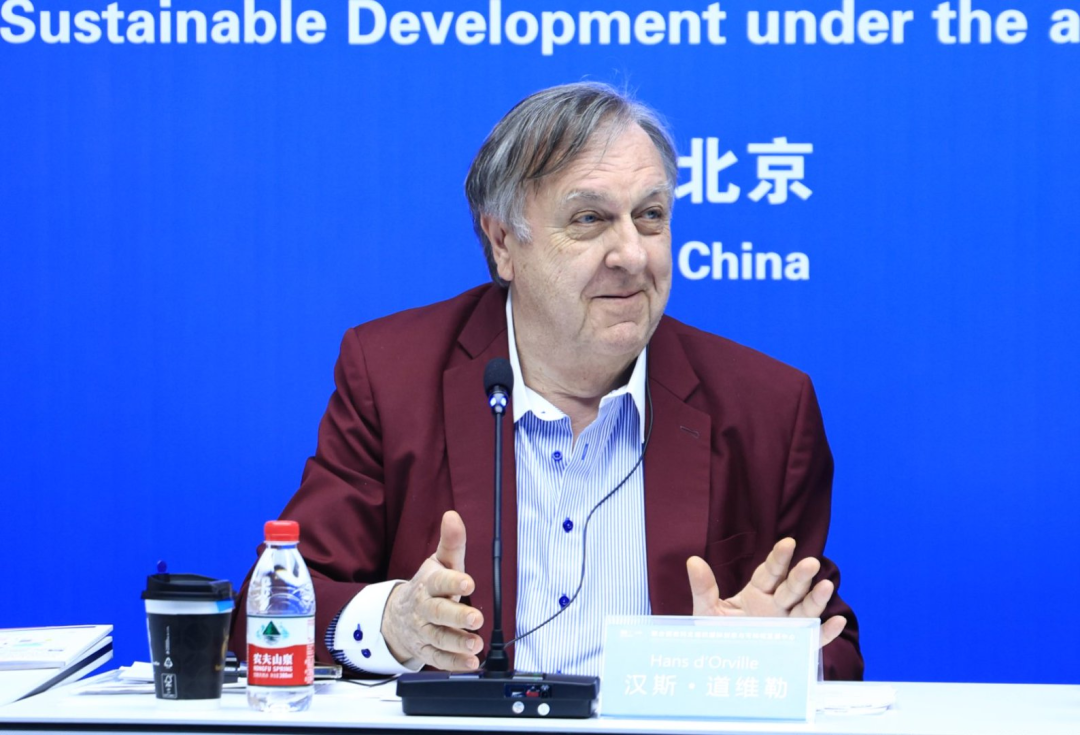
Hans d’Orville, Chairman of ICCSD and Honorary Professor of South China University of Technology, delivers a speech
Hans d’Orville hosted the meeting and delivered the keynote speech. He emphasized the significant importance of “future digital space” for sustainable development, cultural creativity, and the diversity of cultural expression, pointing out that the integration of digital technology and culture can promote the revival of industrial heritage, facilitate sustainable urban development, and build innovative collaboration platforms for talents from different fields such as artists and engineers. He particularly mentioned that science fiction is not only a form of entertainment but also a way of cultural expression that inspires imagination, resonating with UNESCO’s advocacy for the protection of cultural diversity.
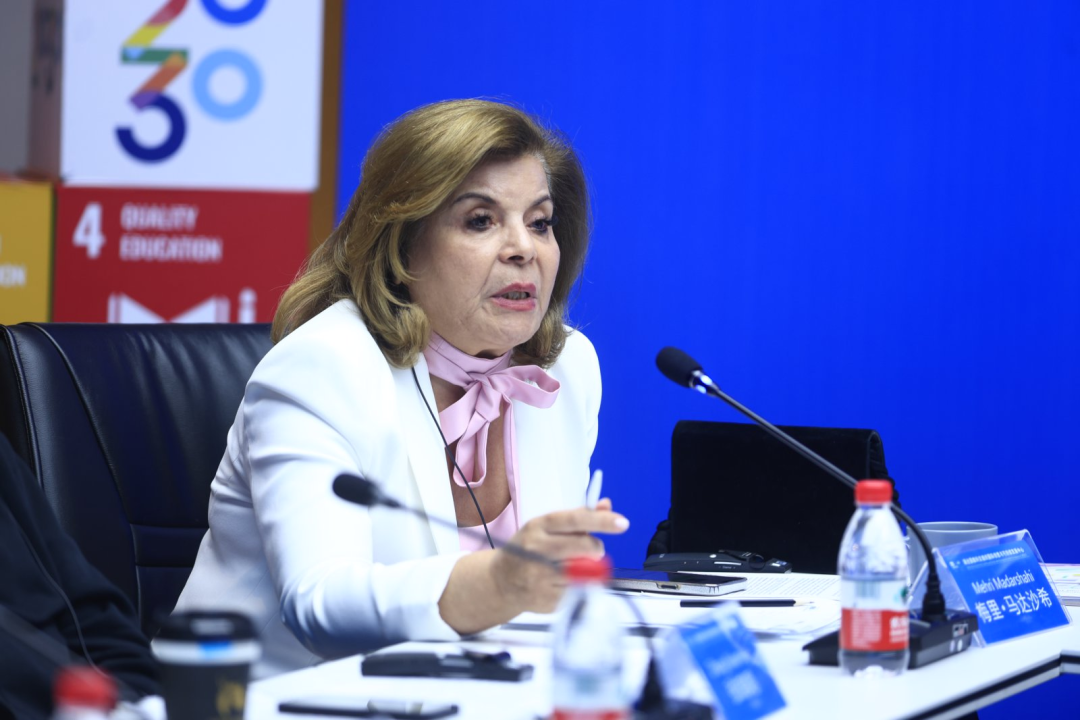
Mehri Madarshahi, President of the Global Cultural Network and Visiting Professor at South China University of Technology and Shandong University of Art & Design, delivers a speech
At the meeting, many experts shared profound insights based on their profession. Mehri Madarshahi pointed out that the digital space has become the foundational environment of human life, and digital innovation should serve the value orientation. She elaborated on the key role of the digital space in achieving the United Nations Sustainable Development Goals, while providing specific application cases in various fields, such as Goal Four Quality Education, Goal Eight Decent Work and Economic Growth, Goal 11 Sustainable Cities and Communities, and Goal 13 Climate Action. She emphasized that technological innovation must closely align with sustainable development goals while paying attention to inclusivity and ethical standards. Mehri Madarshahi stated that every technological advancement should aim towards a vision of a more equitable and prosperous world.
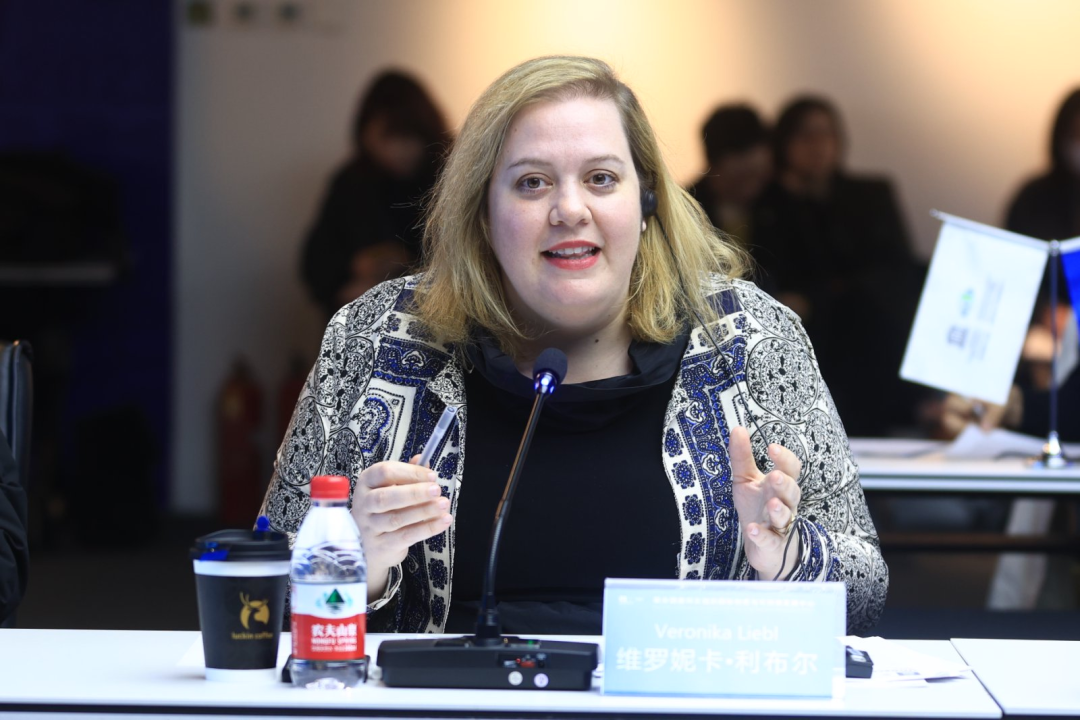
Veronika Liebl, General Manager of the Festival and Exhibition Department at the Arts Electronica Festival in Linz, Austria, delivers a speech
Veronika Liebl shared the strategic path for shaping future artistic spaces in a digital environment based on the transformation practice of Linz, Austria, from a steel city to a UNESCO City of Media & Arts. She proposed to promote cooperation among cultural organizations, showcase diverse cultural expressions and foster social benefits through interdisciplinary collaboration; enhance the linkage between academia and cultural institutions to drive the development of innovative projects; and emphasize the catalytic role of artistic expression in technological innovation, and encourage interdisciplinary exchanges.
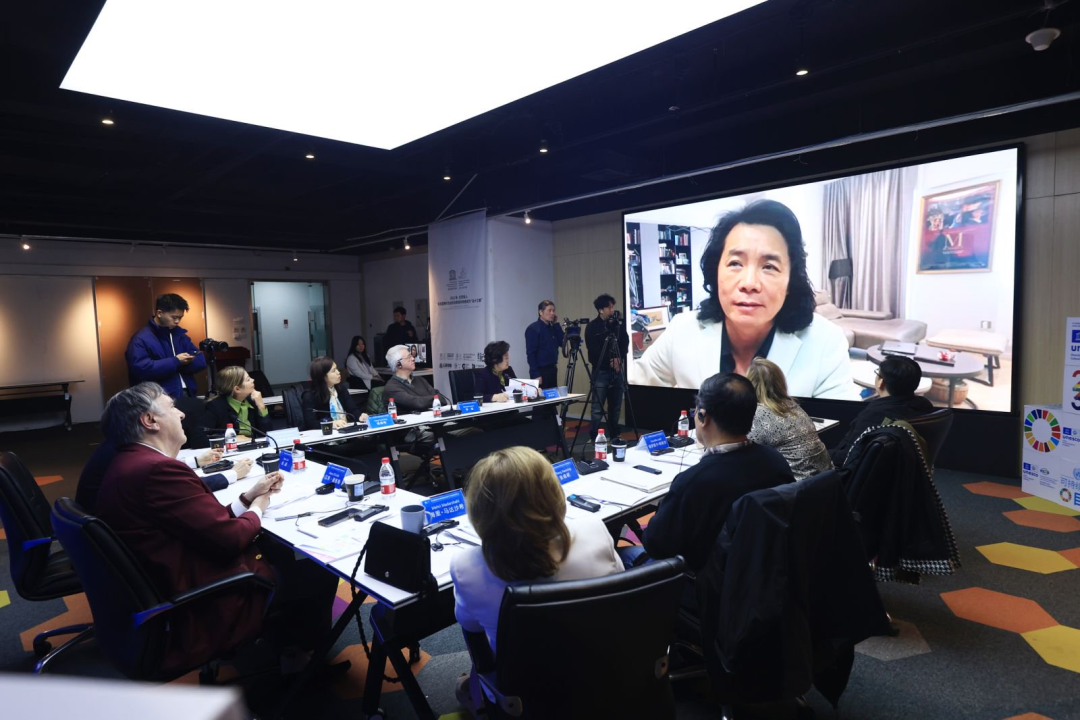
Hu Xuehua, Famous Director and Professor from Shanghai Jiao Tong University, delivers a speech via video
Hu Xuehua, Famous Director and Professor from Shanghai Jiao Tong University, delivered his speech via video. He analyzed the technological changes in the AI era from the perspective of film and television creation. He pointed out that future digital cinema will bring about significant changes in the film industry. Regarding the education sector, he emphasized that students need to focus on building foundational cognitive skills, cultivate information discerning and self-management abilities, and actively embrace artificial intelligence technology, understanding not only the underlying logic of science and technology but also transforming it into a cultural creation tool.
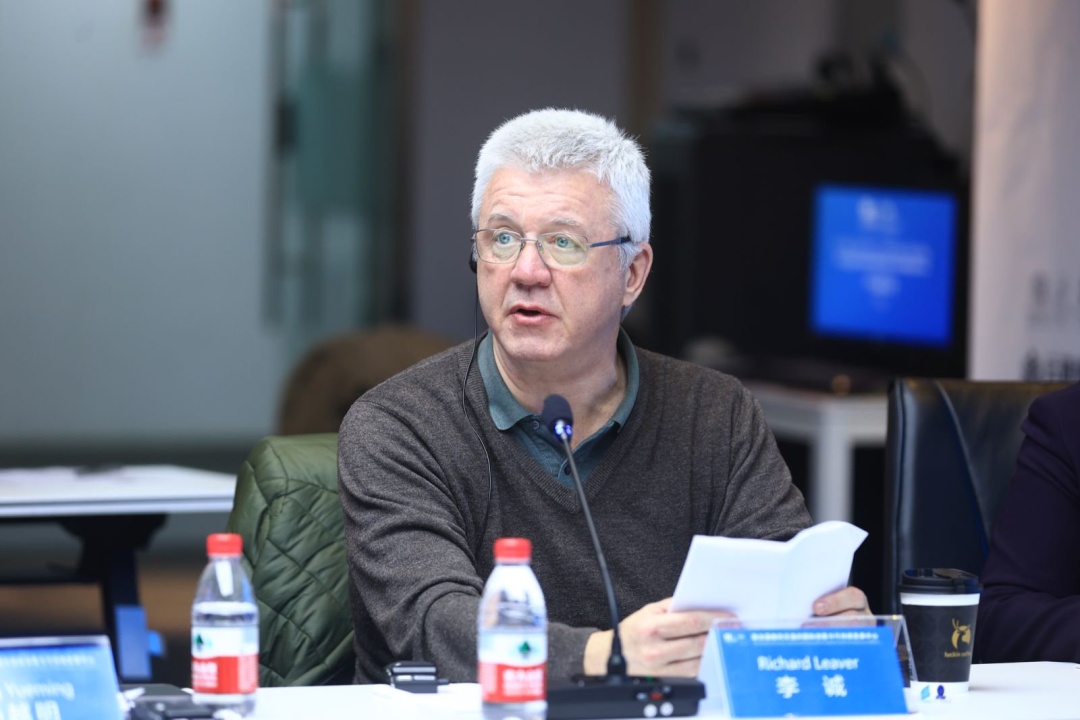
Richard Leaver, Fellow of the Royal Society of Arts and Visiting Professor at Hainan University, delivers a speech
Professor Richard Leaver discussed the trends of integration between digital space and physical space in the future, and how to use technologies such as digital twins to promote sustainable development. He suggested that Beijing make full use of its rich cultural heritage, leading position in the artificial intelligence industry, and concentration of creative industries to strengthen the collaborative linkage between culture and technology, thereby building a digital smart city to address urban development challenges. At the same time, he emphasized that in developing generative artificial intelligence, attention should also be paid to protecting traditional culture, in order to achieve symbiosis and mutual prosperity between digital innovation and traditional wisdom.
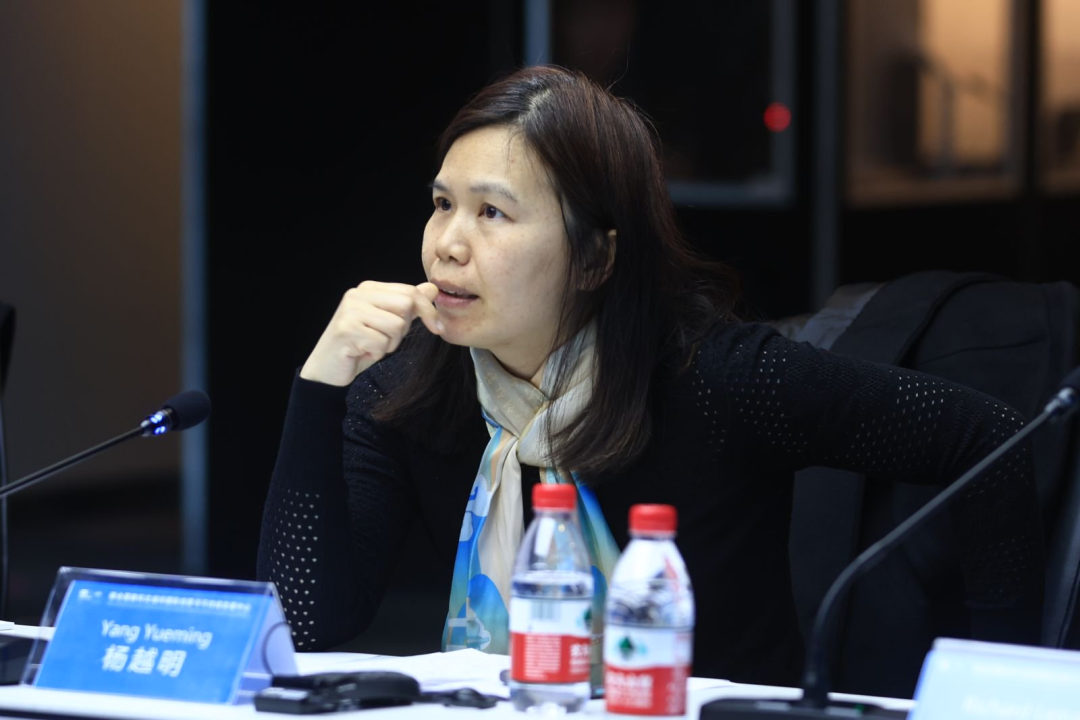
Professor Yang Yueming, Deputy Director of the Institute of Cultural Innovation and Communication at Beijing Normal University, delivers a speech
Based on the experience of implementing projects related to the 2005 Convention on the Protection and Promotion of the Diversity of Cultural Expressions, Professor Yang Yueming deeply analyzed the challenges of cultural development under the sustainable development framework: First, it is necessary to clarify the contribution of culture to the socio-economic development; second, it is necessary to distinguish between cultural diversity and diversity of cultural expressions, with the former emphasizing the protection of plural existence and the latter focusing on innovative presentation methods empowered by technology. She emphasized the goals and mission of ICCSD in this field, hoping to promote the enhancement of cultural value recognition in the digital age, while popularizing digital tools and building a collaborative platform for technical experts and artists.
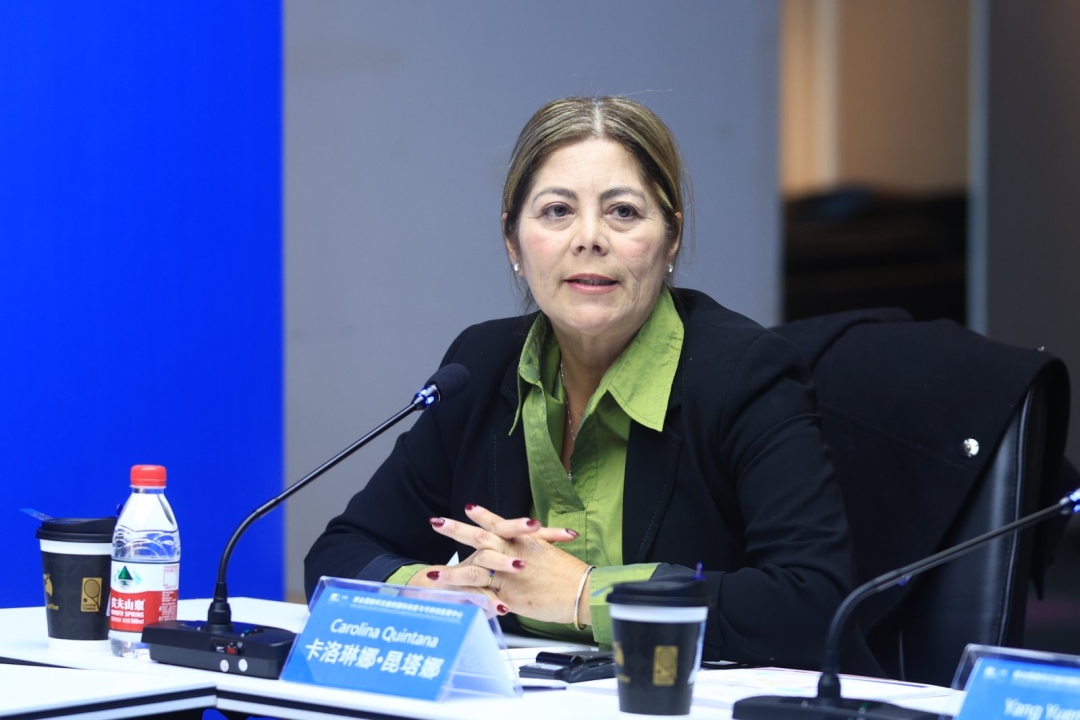
Carolina Quintana, Director of the Asia-Pacific of the World Trade Point Federation, delivers a speech
Carolina Quintana shared the development of the cultural and creative industries from the perspective of international organizations. She highly praised China’s practices in integrating culture and technology, believing that initiatives such as the Creativity 2030 International Forum and the call for cases on protecting and promoting cultural diversity in a digital environment could serve as a model for other countries, especially in Latin America and Africa. She also emphasized that there are still gaps in technology levels and cultural exchanges among countries, calling for strengthened international cooperation and experience sharing, incorporating China’s digital cultural development model into the global governance framework to promote balanced development of the global cultural and creative industries.
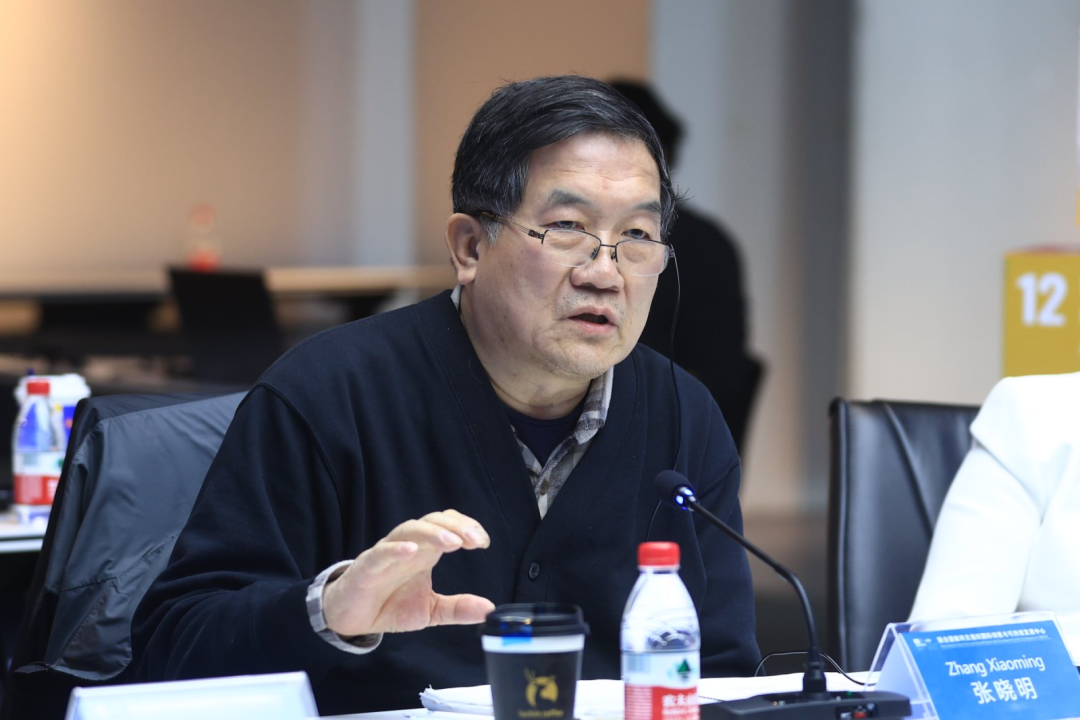
Zhang Xiaoming, Researcher at the Chinese Academy of Social Sciences and Director of the Cultural Policy Committee of the China Association of Policy Science, delivers a speech
Researcher Zhang Xiaoming shared his experiences, discussed the transformation of Shougang Park, and explained the significant influence of digital technology on the digitalization of culture from a theoretical research perspective. He pointed out that the future digital space will bring a brand new way of life, and it is essential to recognize the importance of the digitization of cultural resources. In addition, he took Yunnan’s diverse cultural ecology and the creation ecology of online literature as examples, revealing how digital technologies empower cultural production for all.
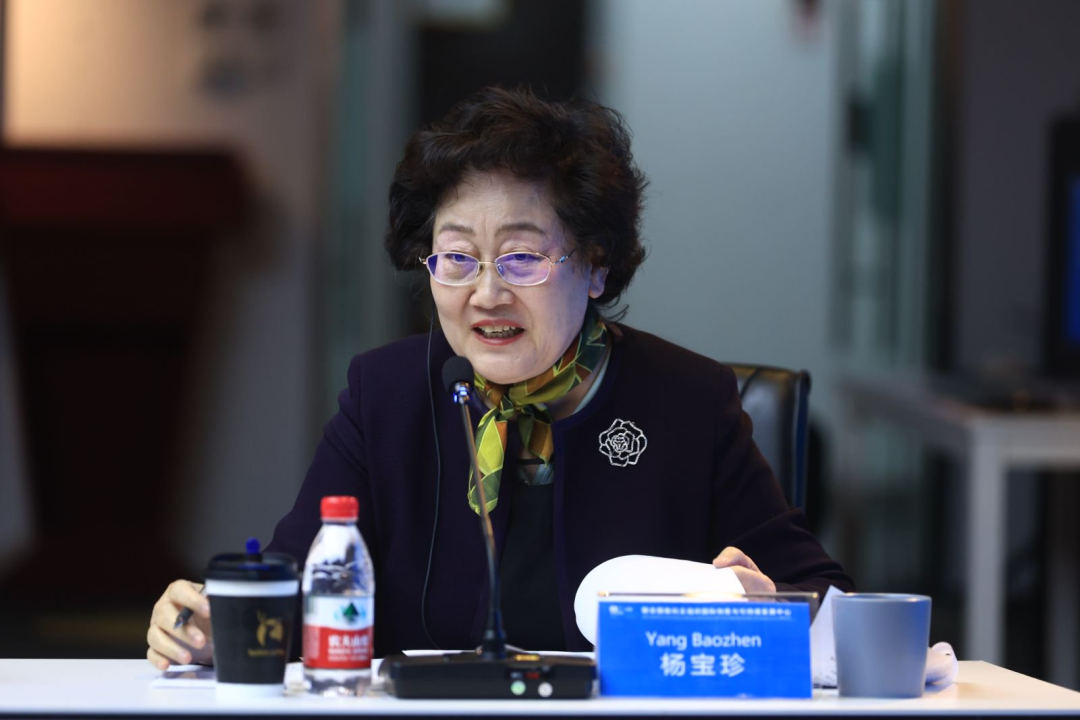
Yang Baozhen, International Expert Committee Member of the China Association for Small & Medium Commercial Enterprises and former Chinese Consul in France, delivers a speech
Yang Baozhen focused on the development of women in the digital age, introduced the positive effects of digital technology in promoting women’s employment, education, and participation in social governance, and proposed suggestions for future digital space development, including strengthening digital infrastructure construction, digitizing cultural resources, cultivating new business forms of “culture + technology”, deepening international cooperation, and improving digital governance mechanisms.
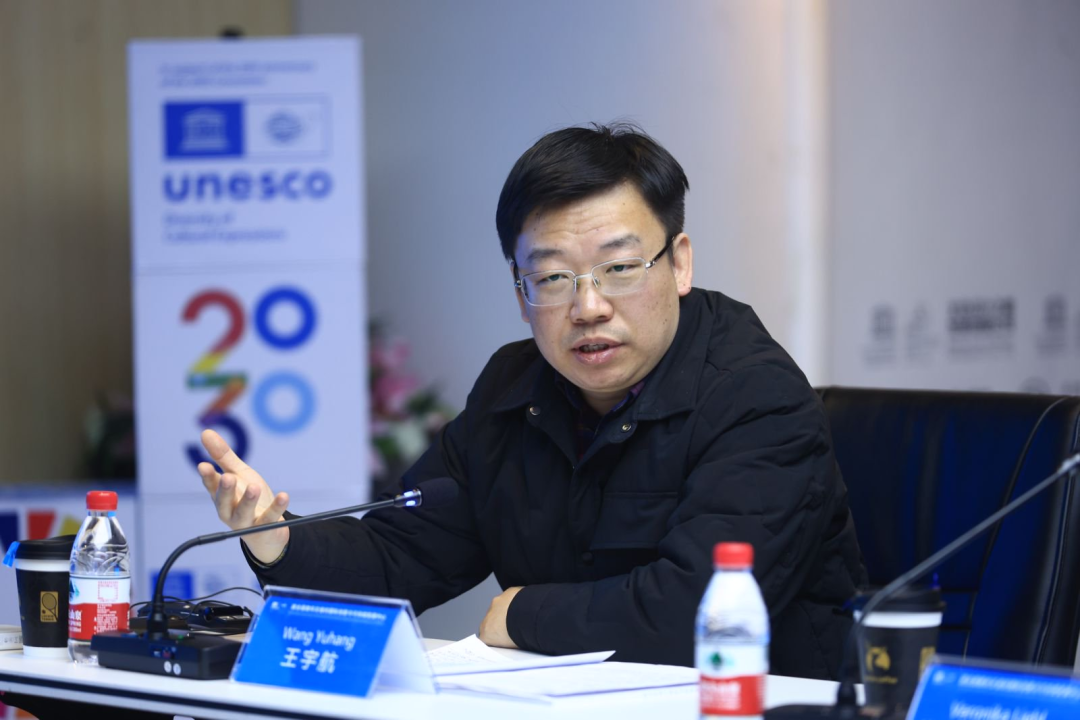
Professor Wang Yuhang, Assistant Dean of the School of Marxism at the University of International Business and Economics, delivers a speech
Professor Wang Yuhang, drawing on experiences related to international trade and youth education, pointed out that traditional classrooms need to shift from knowledge instillation to value creation, activating students’ emotional cognition through humanistic care and cultivating the creative core that artificial intelligence cannot replace. He suggested that universities collaborate with urban resources to create a practical platform that integrates economic trade and cultural exchange, and utilize virtual technology to establish a global network for youth sustainable development, allowing students to understand the symbiotic logic of creativity and business through cross-cultural experiences.
This Advisory Committee Meeting provided a broad communication platform for the integrated development of digital technology and cultural creativity, with experts exploring practical paths to build future digital new spaces from different perspectives. The in-depth discussions among experts have pointed out the direction for the future work of ICCSD, and contributed wisdom and strength to the protection and promotion of cultural diversity and global sustainable development. Next, ICCSD will deepen its cooperation with the Arts Electronica Center in Linz, Austria, and the World Trade Point Federation.

